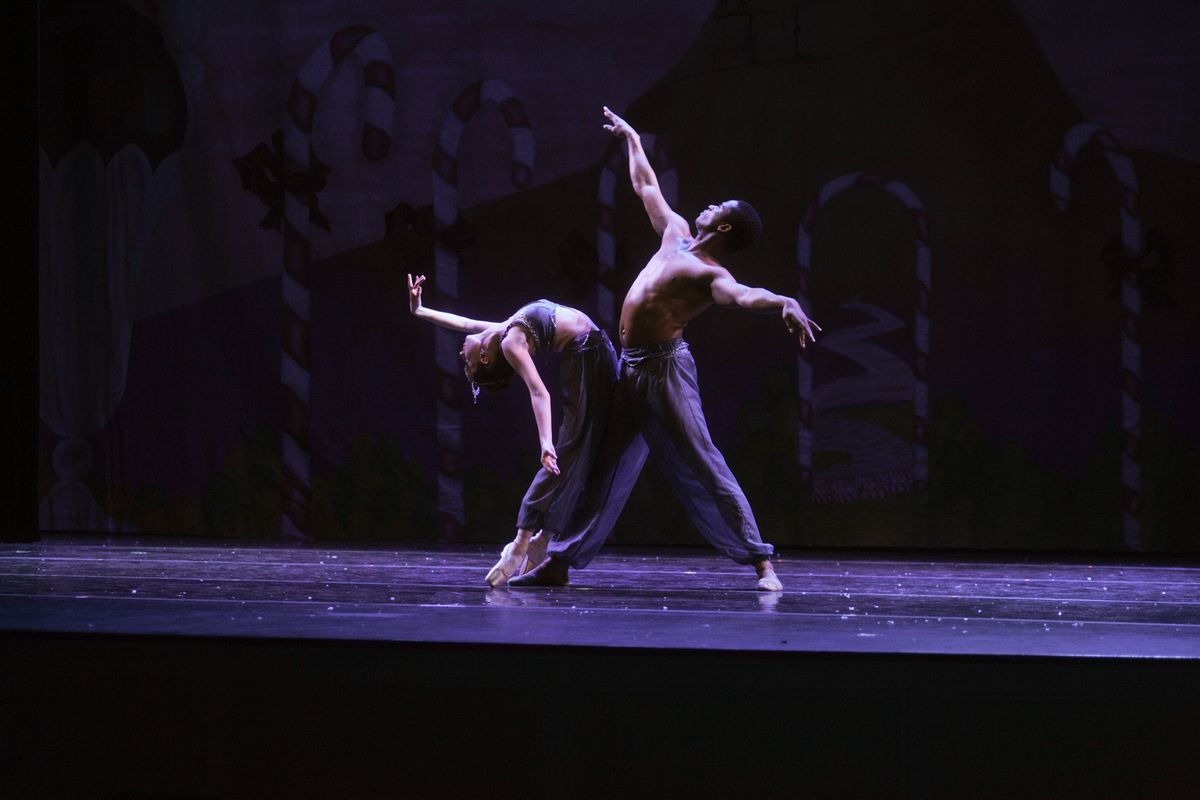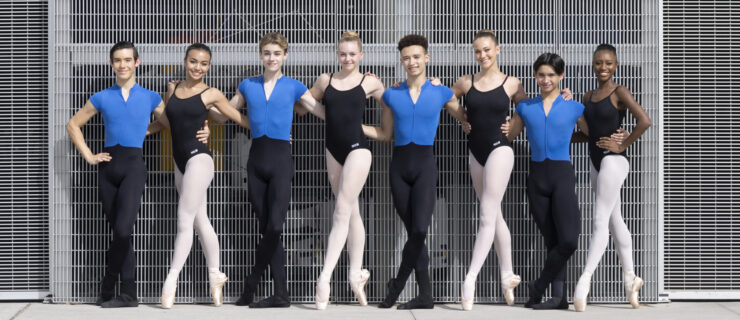Minding the Gap Year: Without a Company Contract, These Three Dancers Found Ways to Keep Their Careers Going
This story originally appeared in the August/September 2015 issue of
Pointe.
After two years as an apprentice with Charlotte Ballet, Lauren Fagone was excelling and expecting to be promoted. But that April, Fagone, now a leading dancer with Richmond Ballet, was notified that there were no available company positions. Even worse, audition season was already over. With no job prospects, Fagone was left in a limbo that most dancers dread: a gap year.
Whether you ended your summer program empty-handed, lost a job unexpectedly or simply had bad luck during audition season, the prospect of a year away from company life—especially when you are just entering it—can seem terrifying. Yet even though you can’t control the decisions of artistic staff, you can make the most of the situation by finding a support base, structuring a consistent training regimen and working towards your long-term goals. Besides having more time to train intensely and be available for more auditions, a year off (or even two) can lend itself to personal, intellectual and social growth. Below, Fagone and two other dancers share how they took charge of their gap year—and how it benefited them.
Brigid Duffin, freelance dancer
By the time Brigid Duffin made the decision last year to leave Sarasota Ballet, where she was an honorary apprentice, audition season was mostly over. Though she received a last-minute offer from Ballet Tucson, she was afraid of being too far away from an audition hub to go for her dream jobs. Instead of giving up, Duffin decided to double down and find the drive to keep her career moving forward. To save money and be close to New York City, she moved back into her family home in New Jersey, which she had not lived in since leaving for San Francisco Ballet School seven years prior. In late summer, she auditioned for Exit12 Dance Company, a small contemporary ballet troupe based in NYC, and booked a Nutcracker gig. Four days a week, her day begins with technique class and ends with a long shift at a local coffee shop. The other three days she commutes into the city to rehearse, take more classes and, of course, audition.
Duffin admits that freelancing’s instability, as well as juggling a side job, can be stressful. On the days she travels to NYC, she often leaves her house at 5 am and gets home by midnight. “I like a strict schedule and knowing what I am going to do,” she says. “I have had to find an inner motivation because no one keeps track if I am in class. You wake up and are tired from your jobs and you have to keep going.”
Duffin keeps a big audition binder with tabs separating open auditions from video submissions, and a pocket to store a calendar and her online research. Duffin believes that her work and time onstage with Exit12 have kept her in the right mindset for getting her next job. Pending the outcome of her auditions, she might move to NYC and commit fully to freelancing.
Kathryn Meeusen, BalletMet
After a year in Tulsa Ballet’s second company, BalletMet’s Kathryn Meeusen still felt uncomfortable in a professional setting. Knowing she was unlikely to be promoted, she began auditioning in earnest. “The only positive responses I received were from companies I wasn’t truly interested in,” says Meeusen.
She realized she would need to take a step backward, to focus on strengthening her body and address other gaps in her training, in order to achieve her future goals. On a whim, Meeusen had sent an application to the Joffrey Ballet School’s Ballet Trainee Program in New York City while she was auditioning for companies. She hadn’t given it much thought, but when the acceptance arrived with a full scholarship, it felt like serendipity. Her parents’ financial support, which paid the rent on her tiny studio apartment and living expenses, allowed her to dive into days of uninterrupted classes. Meeusen’s schedule began with yoga or Pilates, followed by technique class, pointe and variations with her trainee level, along with rehearsals for upcoming performances. In the evening, she would take the technique classes offered for younger dancers.
Like Duffin, Meeusen was free to hit audition season hard when it came around again, auditioning every weekend. When she felt frustrated, she turned to her trainee program directors, Davis Robertson and Era Jouravlev, for guidance. “They spent a lot of time with me, kept me grounded, answered my questions,” she says. “I also made great friends—you get to know people doing auditions and there is camaraderie in that.” She eventually landed an apprenticeship with Ballet West, and later danced with Ballet San Jose before joining BalletMet. She credits her extra year of training as essential to her later success. “My strength made a huge jump,” says Meeusen. “I was in better shape to audition.”
Lauren Fagone, Richmond Ballet
When Lauren Fagone was offered an apprenticeship with Charlotte Ballet her senior year of high school, her parents supported her decision to take it and get her diploma while working with the company. But when she found out, post-audition season, that she wouldn’t receive a corps contract, her parents suggested that she go back to school to figure out the next step in her career. But it was even too late to apply for college. Fagone called Indiana University’s dance department anyway, explained her situation, talked her way into an audition class and gained last-minute acceptance into the program.
Fagone found that IU ran very similarly to Charlotte Ballet, with company class in the morning, followed by pointe and daily rehearsals. Academic classes were held in the evening. “I had the opportunity to do amazing work, both Balanchine and contemporary repertory, with Violette Verdy and Leslie Peck,” says Fagone. “They were incredible ballet resources at my disposal and I grew a lot.” She found that the university experience clarified her professional goals, rather than distracting her from them. “It made me focus on what was important in my life, my priorities,” remembers Fagone. “I was going there for the best training, not to have the typical college experience.”
Committed to returning to company life, and guided to Richmond Ballet through Peck, she traveled to Columbus, Ohio, in the spring of her sophomore year to audition for RB, where she secured another apprenticeship. Thirteen years later, Fagone’s two years at IU were clearly a stepping stone that led to a successful and fulfilling career.
While exile into a gap year can be uncomfortable and disheartening, it does not have to be a career ender. “In this business, stuff never goes according to plan,” says Meeusen. “You have to keep a level head.” The passionate drive that pushed these artists to prove themselves and excel outside of company life is the same force that eventually brought them back into the professional fold.
Don’t Just Survive, Thrive
If you haven’t been hired into a company full-time, it’s still possible to have a worthwhile year. A brief time-out can, in fact, be a game changer. Here are some tips for staying productive and motivated.
1. Be resourceful.
Take stock of any special skills and support systems, whether financial, social or emotional, that you already have access to, such as your family and friends, your school affiliations, and your work or academic history. Use whatever resources you have to establish an affordable place to live, a part-time job to pay the bills and a relationship with teachers who can help take you to the next level.
2. Maintain a consistent training schedule. Without the structure of a company or school setting, you’re responsible for your own training regimen. Commit to a regular class and cross-training schedule—and stick to it—to ensure you’ll be in top form come audition season.
3. Look for performance opportunities.
Some companies look for supplemental dancers to fill their corps de ballet for large productions like Nutcracker, Swan Lake and Giselle. In addition, many schools hire guest soloists to fill lead Nutcracker roles. On top of providing income and connections, guesting gigs can also be a great way to keep up your performing chops.
4
. Stay focused on your long-term goal.
When you feel discouraged, just remember: Audition season is only a few months away.





